
According to the company, the announcement represents the first FDA-approved, fixed-combination of tropicamide and phenylephrine for mydriasis.

According to the company, the announcement represents the first FDA-approved, fixed-combination of tropicamide and phenylephrine for mydriasis.

Sandor Palfi, Commercial Vice President of the Americas at Johnson & Johnson Vision discussed pipeline updates for the company including the ELITA femtosecond platform at the 2023 ASCRS annual meeting in San Diego.

Lowe is the VP, of Commercial Operations at Eyenovia, and discussed the FDA approval of MydCombi for mydriasis at the 2023 ASCRS annual meeting in San Diego.

According to the company, a PDUFA date has been set for December 22, 2023.

Scientists at Medical College of Georgia demonstrated in their animal model of retinopathy of prematurity that the small molecule K604, which is being explored in cancer and Alzheimer’s, can block the development of leaky, obstructive blood vessels in the retina, tamp down inflammation and enable more normal blood vessel growth

Bharti Nihalani-Gangwani, MD, from the Department of Ophthalmology, Children’s Hospital, and Deborah VanderVeen, MD, from the Department of Ophthalmology, Harvard Medical School, Boston, reported that 29% developed glaucoma in a large infant cohort and the risk factors at the American Society of Cataract and Refractive Surgery annual meeting.

Rob Weinstock, MD from the Eye Institute of West Florida presented on his experience working with the ALLY cataract femtosecond laser cataract system from LENSAR at the 2023 ASCRS annual meeting in San Diego.
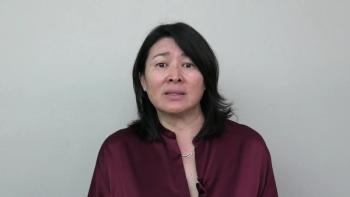
Ophthalmology Times© met with Eva Liang at the 2023 ASCRS annual meeting in San Diego where she presented data on outcomes of the Rasch-scaled Catquest-9SF questionnaire before and after implantation of the enVista toric lens.

Jim Mazzo, executive chairman of Neurotech Pharmaceuticals, discussed the company's goal to slow down the progression of MacTel and their recent advancements at the ASCRS annual meeting in San Diego.

Lance Kugler, MD, recapped his presentation and findings on the safety of office-based cataract surgery with the Ophthalmology Times© team at the ASCRS annual meeting in San Diego.

Mark Baum, CEO of Harrow discussed the recent launch of Iheezo and other key updates from the company with the Ophthalmology Times© team at the ASCRS annual meeting in San Diego.

Ophthalmology Times© caught up with Alice Epitropoulos at the 2023 ASCRS annual meeting in San Diego. Among her presentations at the event, she shared data regarding the visual and refractive outcomes of aberration-free monofocal hydrophobic toric IOLs.

Lucie Moore, BSc, in a presentation at the American Society of Cataract and Refractive Surgery annual meeting in San Diego, said the study focused on identifying factors that could put patients at a higher risk for developing dry eye disease.
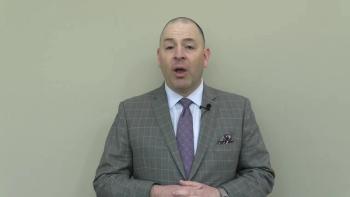
Ophthalmology Times© spoke with Greg Kunst about Aurion BioTech's 12-month data from their recent Escalón trial 2023 at the ASCRS annual meeting in San Diego.

Alcon presented details from a new study at the American Society of Cataract and Refractive Surgery’s annual meeting taking place in San Diego, California. The investigator-initiated study led by J. Morgan Micheletti, MD, demonstrated that Clareon and Eyhance monofocal IOLs provide similar range of vision, including distance and intermediate visual acuity.

The study, titled “A Clinical Registry Study of Glaucoma Medication Use in Patients with Mild Glaucoma Severity After MIGS,” will be presented Sunday by Michael Mbagwu, MD, at the American Society of Cataract and Refractive Surgery annual meeting in San Diego, California.
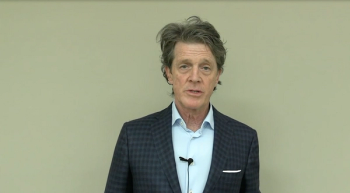
Stephen Coleman from Coleman Vision in Albuquerque, New Mexico, spoke with the Ophthalmology Times© team discussed the long-term outcomes with LASIK using the iDesign 2.0 software.
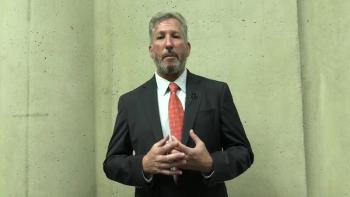
Ophthalmology Times® spoke with Mitch Shultz, MD at ASCRS 2023 in San Diego about the a new FDA clinical trial for a device called StableVisc being launched on the market by Bausch + Lomb.

George Waring IV, MD met with the onsite Ophthalmology Times© team to share data from his presentation on the first in-human results for the OmniVu IOL system.

Ophthalmology Times® spoke with Mitch Shultz, MD at ASCRS 2023 in San Diego where he shared insights from his presentation comparing patient results of the Hydrus stent and the iStent inject W with or without ABiC (or ab-interno canaloplasty).

Erin Powers, Vice President of Global Marketing and Product Strategy for BVI Medical stopped to talk with Ophthalmology Times© at the 2023 ASCRS meeting in San Diego, California to share the latest news from the company.

Ophthalmology Times© spoke with Richard Lewis, CMO of ViaLase at the 2023 ASCRS meeting in San Diego. There he gave out team the details of his presentation for the 2 year follow up of the first in-human study of Femtosecond Laser Image Guided High-Precision Trabeculotomy (FLigHT).
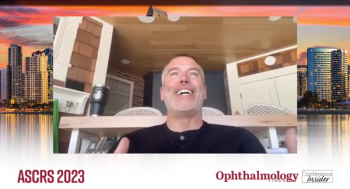
John Berdahl, MD sat down with David Hutton, Managing Editor, Ophthalmology Times®, to discuss his abstract on the Phase 3 trials of iDose TR, versus topical timolol at the ASCRS annual meeting in San Diego.

Umida F. Mavlyanova, PhD, in a presentation at the American Society for Cataract and Refractive Surgery’s annual meeting in San Diego, detailed how patients diagnosed with end-stage chronic renal failure displayed deceased blood flow in the orbital artery, the central artery of the retina and the posterior short ciliary arteries.
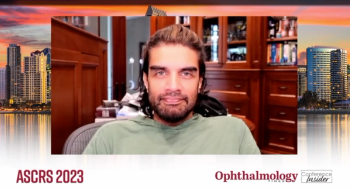
Ike Ahmed, MD, sat down with David Hutton, Managing Editor, Ophthalmology Times®, to discuss his presentation on the study of standalone multiple trabecular micro-bypass stents for uncontrolled glaucoma at the ASCRS annual meeting in San Diego
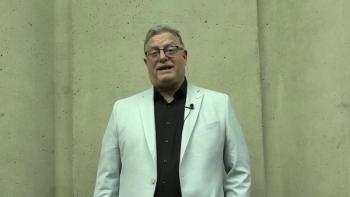
Gerd Auffarth, MD, PhD, and the chairman at the Heidelberg University Eye Clinic discussed the 7 year, long-term data for the iStent inject second generation with our team at the 2023 ASCRS meeting in San Diego.

William Trattler, MD, sat down with Sheryl Stevenson, Group Editorial Director, Ophthalmology Times®, to discuss his presentation on progressive keratoconus in older patients with delayed corneal cross-linking treatment at the ASCRS annual meeting in San Diego.

Speaking at the American Society for Cataract and Refractive Surgery annual meeting in San Diego, Marcony Santhiago, MD, points out there are subtle differences in patients with keratoconus that was progressing compared with patients whose disease was stable and healthy control subjects.
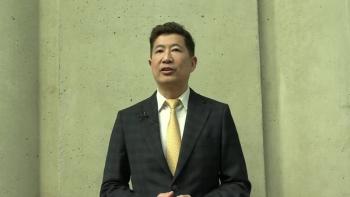
Ophthalmology Times© spoke with Robert Lin, MD at the 2023 ASCRS meeting in San Diego, where he shared the value of using the Insight 100 by Arcscan in his practice and why it provides a safer outcome for patients.

Ophthalmology Times© met with Robert Lin, MD at the 2023 ASCRS meeting in San Diego, where he shared his experience using ICLs in his practice and the advancements that help make these devices the right choice for patients.